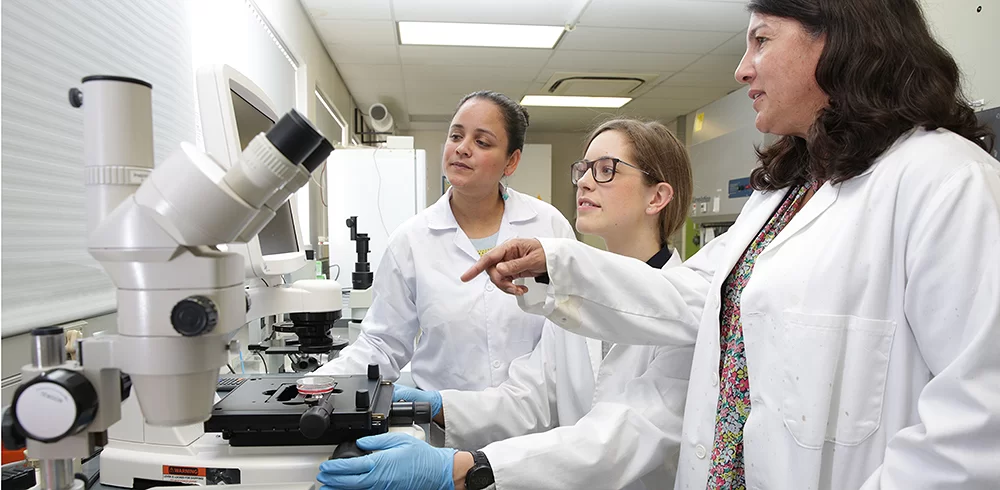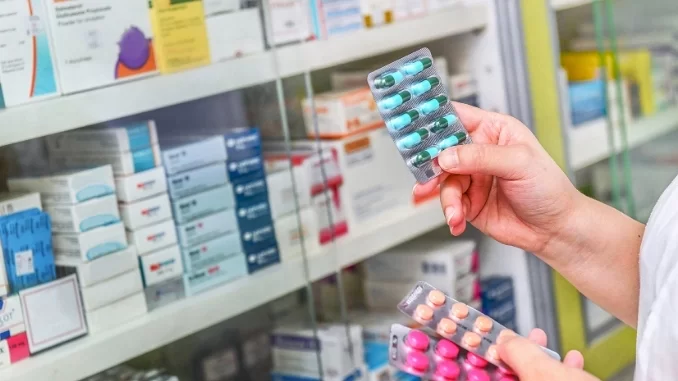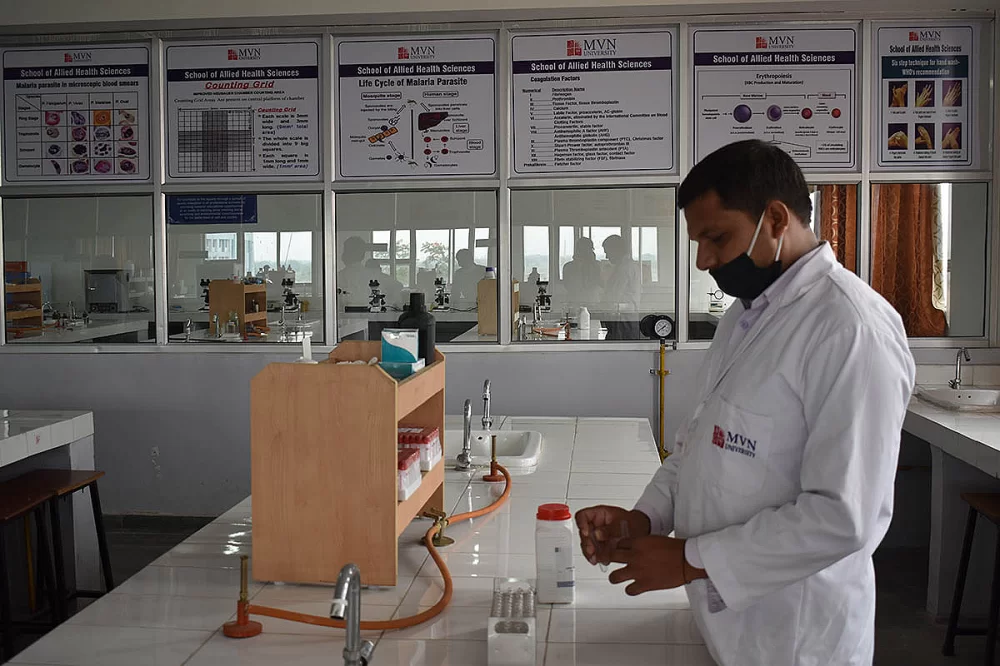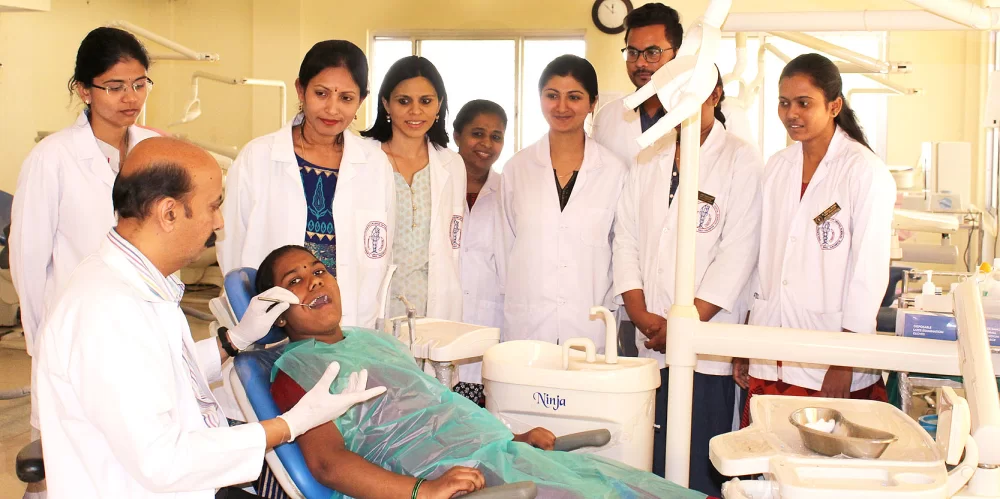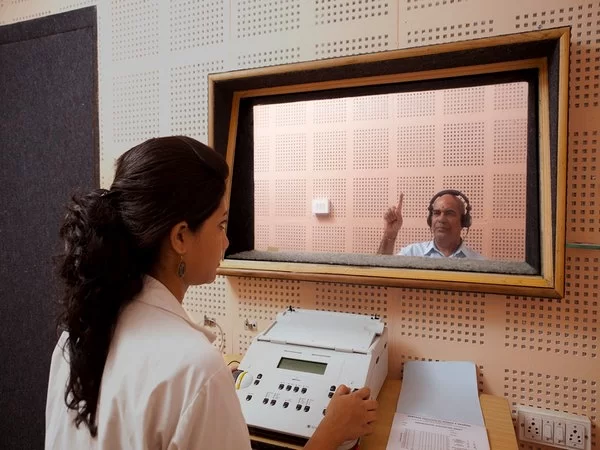Faculty of Allied Health & Basic Sciences
Since its establishment of FAHBS in 2010 at SDUAHER having Sri Devaraj Urs Medical College, RL Jalappa hospital and research Centre in the same campus, the growth and progress of the Allied Health Science has been steady and has been propelled with adequate basic infrastructure, clinical facilities and with dedicated and qualified teachers. They teach and train students of graduate, masters programs in various job oriented avenues in disciplines like clinical chemistry, microbiology, nutrition, Yoga Therapy, Physiotherapy audiology and speech language pathology, molecular biology, cytogenetic, molecular genetics and other health Professions Education. FAHBS has introduced Choice Based Credit System (CBCS) pattern from the year 2016-17 as per UGC Guidelines for Allied Health Science programs. In this scheme, students have a choice to choose from the prescribed courses which are referred as hard core, and soft core (discipline specific, generic, electives) they can learn at their own pace and the entire assessment is graded-based on a credit system. The basic idea is to look into the needs of the students so as to keep up-to-date with development of higher education in India and abroad.
Allied Health Science programs meet the requirements suitability to professional practice. It provides an environment for the learners to acquire professional skills, values of team work, communications skills etc. Few programs are recognized by regulatory agencies such as Radiotherapy, Medical Imaging Technology by Atomic Energy Regulatory Body (AERB) of India, speech pathology and audiology by Rehabilitation Council of India (RCI). SDUAHER has a facility of career guidance and placement cell provides advice, counseling, career guidance and related logistics for enabling one to choose a career that would be helpful for better employment opportunities or progression to higher studies. AHP comprise more than 50 percent of the total health care workforce as the healthcare exhibits ongoing employment growth in various health sectors continue to functions as physiotherapist, nutritionist, audiologist, speech pathologist, optometrist, Medical Laboratory technologist, respiratory therapist, Radiological specialist, Perfusion technologist and many more. WHO also indicated by the year 2030, about 40 million new health sector jobs mostly in the middle and high income countries and going to be triple globally in healthcare system due to aging and rising incomes.
Considering India’s large population, growth of private health service providers, launch of Government health schemes and with the advancement of technology AHP new jobs opportunities India will create in high magnitude.On the other side, current status of healthcare workers in India, apart from the shortage of doctors and nurses, the strength of AHPs in India is not even five percent of the current demand. As per the PHFI Report, 2012, there was a AHP shortfall of 64 lakh in India. Analyzing the gap between both existing and arising opportunities will create millions of jobs for AHPs in the coming years. Our country can reap this benefit of National and global demand by investing in capacity building and training of AHPs at par with global standard. Quality training of AHP programs is a key area, and are largely guided by National Occupation Standards (NOS) and Sector Skill development Council. The quality delivery of program providing extra input on “core employability skills” such as communication, English, soft skills, interview facing skills other than the technical trainings to make trainees job ready. In order to optimize the strength and skills of Allied health care professionals for sustainable development (SDG 3 aspires to ensure health and wellbeing for all) and in line with NEP 2020, the academy preparing to align the programs as per the requirements of NEP 2020.

